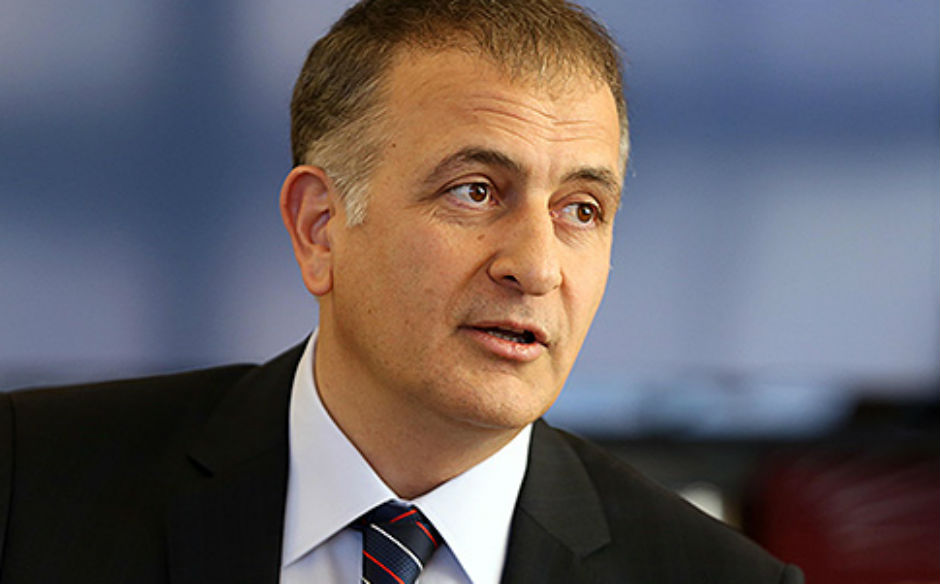
Ekrem Dumanlı
US President Donald Trump, in his latest United Nations speech, implied the biggest fight of our century. According to Trump, “The future belongs to patriots, not globalists.”
This very sentence quite ably crystallizes what we’ve been experiencing lately around the world. A crucial point, indeed.
Globalism or patriotism?
On our old planet, we have been in a deep conflict for the last decade. After the fall of the Soviet Union, globalism became the rising star. Furthermore, many experts depicted it as the only alternative for the human race. No more iron curtain. No more communism. No more cold war.
According to the futurists of the time, the world order had become unipolar, the US being that pole: The spaces shrank, the times shortened; and with the help of modern technology, our planet had become a “global village.” As a result of mass communication technologies, many expected, societies would interact more, then they would become similar, changing and transforming each other. A number of facts, actually, supported these ideas.
In fact, for the masses, the globalist vision had implied a fair, secure and happier social order, somehow promising to undermine inequalities. The system it envisaged was transparent, controllable, sharing and inclusive.
We had a brief period of time in which national borders were crossed more easily, international relations left behind alarmist principles and mass communication became productive. It was considered the highest standard human beings had ever achieved.
Unfortunately, some of the promises of this progressive process, which was conducted with the support of high technology and with the help of porous national borders, could not be maintained. For instance, it could not weaken the inequality that made the rich richer and the poor poorer, the oldest reason for the masses to rebel. The unfair distribution of wealth could not be reversed with the new technological opportunities. At the end of the day, the masses were caught between dreams and realities.
In the meantime, an unexpected turn of events unfolded. A new kind of Soviet Union was born from its predecessor’s ashes. Vladimir Putin came to power and established a base for himself and then expanded his influence into the former Soviet republics. Of course, it wasn’t a classic Stalinist state as it had been. However, this new Russia under the leadership of Putin has whet the appetite of many a politician. According to them, a country could have a parliament and hold elections, but an authoritarian leader would make the state invincible.
Turkey’s crisis of democracy under President Recep Tayyip Erdoğan is the result of such an authoritarian tendency. He knew very well that he could not contravene the country’s constitution if Turkey had become a European Union member. Therefore, he deviated from the EU membership path with a shortcut more amenable to his strong authority. He sought to silence all dissidents, tame the media and destroy the system of checks and balances. Nevertheless, he was unable to see that Turkey was not Russia, nor Iran, nor China. Turkey has no oil or natural gas deposits. Its democratic experience dates back to the Ottoman Empire era.
For leaders with authoritarian tendencies, there was no other way than to cling to nationalism in the face of globalism’s inclusive human rights perspective. When a migration influx from the Middle East to the West triggered xenophobia, the new nationalist approach found an environment in which to flourish. Westerners had terrible memories of nationalism, especially with the far right and racist versions. To rebrand nationalism, some populist politicians substituted patriotism for the term.
But who could guarantee that a patriotism based on collectivism and focused on similarities while excluding differences would not lead to racism and far right sentiment?
So let me rephrase the initial dilemma: a globalism that brought an easier life with the help of technology but failed to provide peace to all segments of society, or a patriotism that is always on the verge of becoming xenophobia and racism.
This is quite frankly a new kind of world war. Will nations walk towards a fascism sustained by the will of the people, or will they improve administrative structures, making them truly based on social equality and inclusive democracy?
We will apparently observe the struggle between these two lines of thought throughout the next decade. There will be alarming attacks from the extremes. We will probably see mass frenzy under the influence of never-ending conflict. Some turns of events will surprise us in the meantime.
In any case, everything will be settled in the end. There will be costs, but humanity will reach a new synthesis out of what it has, out of patriotism and globalism. The worst case scenario would be a bloody conflict between nations, causing millions of deaths and irreparable harm. But the world cannot afford to repeat 20th century mistakes. Conflicts will resume, leading the emergence of carbon-copy, authoritarian regimes, and these regimes will be costly due to their irrational policies. Thus, extreme sentiments will be reduced in time.
True believers who devoted themselves blindly to one political party, one ideology, or even one country, will not see the future.



